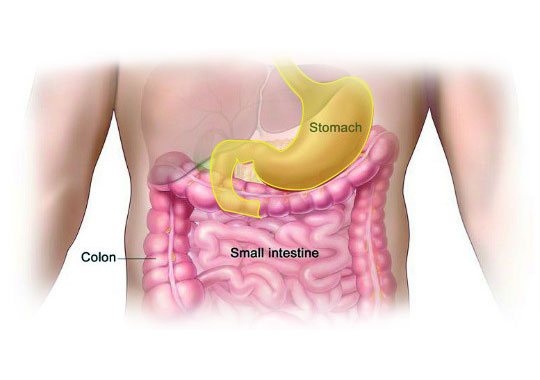- Endoscopy or gastroscopy is a procedure that examines the oesophagus, stomach and duodenum (or the start of the small intestine). This area is highlighted in yellow on the diagram.
An endoscopy may be done to investigate symptoms such as reflux, trouble swallowing, abdominal pains, bleeding, weight loss or abnormal test results. It allows doctors to identify many things including reflux complications, ulcers, inflammation or cancers and to take biopsies.
The procedure involves passing a small tube into the mouth and down the oesophagus to the stomach. This may be somewhat uncomfortable so it is done while you are sedated.
The stomach must be empty at the time of the examination, so you will be given instructions about how long to avoid any food or drink before the procedure, usually around 6 hours.
Most medications can be taken with a sip of water on the morning of your test. If you are unsure about whether you need to stop medications before your test, please clarify with your doctor well before the date. For example, blood thinners or diabetic medications.
During the test, your doctor may decide if they need to remove polyps or take biopsies.
Although complications during this procedure can occur, they extremely rare. Driving is not permitted for 24 hours after the procedure, to allow all the sedation medication to wear off.

